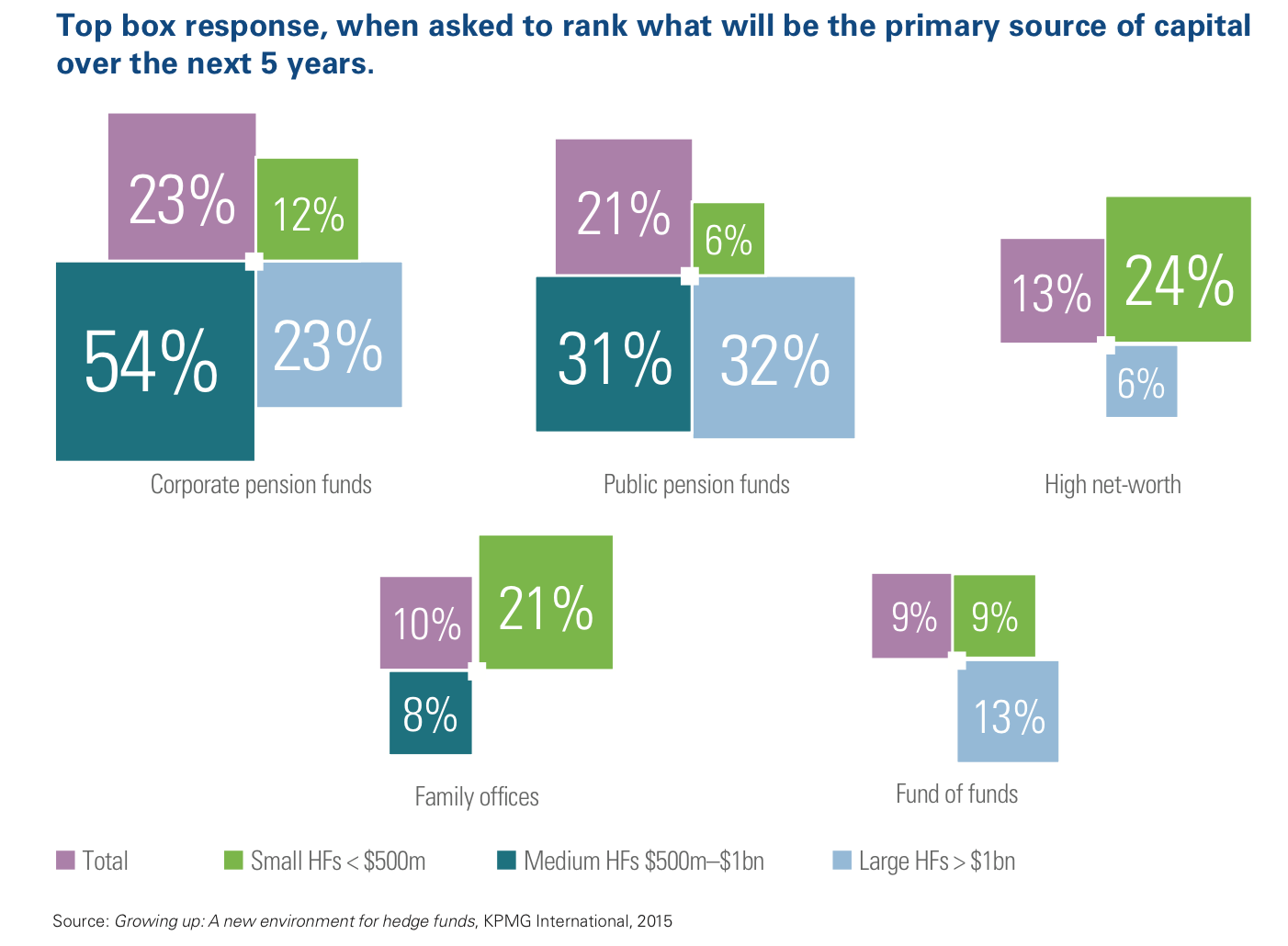Pension funds are likely to dominate the hedge fund industry’s assets in the next five years and are gaining more control over fee arrangements, according to a report.
The survey—conducted jointly by consulting firm KPMG, the Alternative Investment Management Association (AIMA), and the Managed Futures Association (MFA)—studied more than 100 hedge fund managers representing $440 billion, and found the sector was on the cusp of major dynamic changes.
“The days of hedge funds simply being an investment tool for high net worth individuals are over,” said MFA President and CEO Richard Baker. “Institutional investors like pension plans, university endowments, and charitable organizations now make up nearly 65% of the industry’s assets.”
Some 44% of respondents said they expected corporate and public pension funds to be their primary source of capital by 2020, replacing the high-net-worth investors and family offices.
Medium-sized managers—with assets between $500 million and $1 billion—were the most optimistic about attracting institutional capital, with more than half expecting corporate pension funds to be their primary source of capital. This is despite high-profile exits from hedge funds in the US and Europe last year.
The respondents said the increased interest from pension funds could be due to moves towards direct investing, instead of the traditional fund-of-funds route.
A separate report from Preqin found some 23% of public institutions allocated anywhere between 2.5% and 4.99% of their portfolio to hedge funds, “indicating a healthy degree of confidence for the asset class.” Some 18% of private investors also invested more than 25% of their portfolio in hedge funds.
With the influx of institutional capital into the hedge fund industry, managers said transparency has also become increasingly important—and time-consuming. Larger managers are more likely to succeed in this environment than their smaller counterparts, the report said, as more asset owners request detailed reports and granular data.
To attract institutional capital going forward, the report said 31% of managers expect to alter their fee structures “to meet the unique demands of these new investors.”
More than two-thirds of the respondents said they would implement customized fee structures for either incentive or management fees. A majority (84%) of managers also said they expected investors and managers to compromise on fee arrangements over the next five years.

Related Content: Poor Hedge Fund Returns Set to Last, Say Investors & Investors Renew Faith in Hedge Funds
